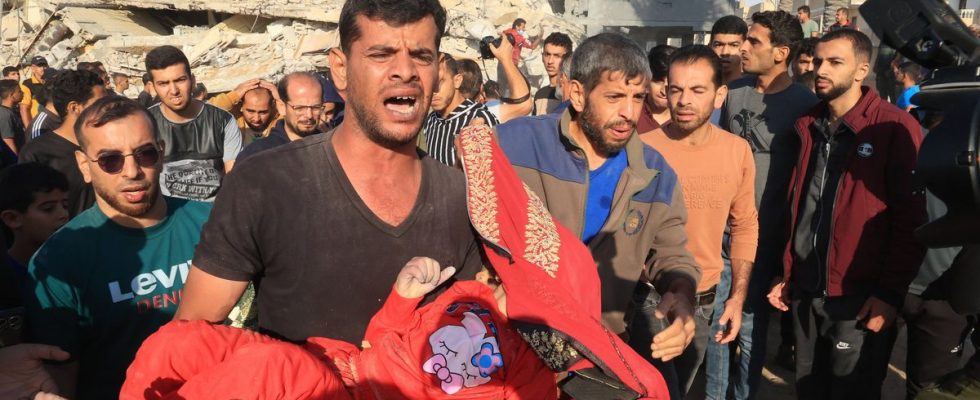Nearly two weeks after the large-scale attack carried out by Hamas in Israel, the spotlight is more than ever on the Gaza Strip. The Palestinian territory, cut off from the rest of the world, suffered heavy bombardment from the Israeli army, deploring more than 3,000 deaths and hundreds of thousands of displaced people.
Despite the difficulty of access for humanitarian personnel, certain associations are on site. This is particularly the case for Handicap international. Danila Zizi, Palestine manager of the organization, responds to 20 minutes.
What is the situation in Gaza?
Living conditions in Gaza are increasingly dire. The number of displaced people is estimated at around one million, including more than 353,000 people staying in UNRWA camps. [L’Office de secours et de travaux des Nations Unies pour les réfugiés de Palestine dans le Proche-Orient] in central and southern Gaza. UNRWA recently sounded the alarm, saying it had exhausted all the resources needed to provide food and water.
In Gaza, water is available in homes through pumps powered by electricity; the continued absence of electricity affects all essential services, including refrigerators. Faced with this lack, the population tries to obtain water anywhere, often not clean, which can lead to epidemics.
Hospitals have turned into shelters, it is difficult to carry out vital activities, and medicines are exhausted. Furthermore, the psychological well-being of people is alarming, volunteers and staff of Handicap International have sounded the alarm on several occasions about the toll that repeated bombings and the feeling of insecurity are taking, particularly on women. and children.
Beyond the bombings, Israel has cut off water and electricity…
This is certainly one of the major concerns. We can speak of a humanitarian catastrophe. Civilians are exhausted, physically and mentally, rationing food and water, unable to have safe spaces. The injured and disabled people cannot receive life-saving care.
What are your actions on site?
Handicap International’s top priority remains the well-being of its staff and partners, 300 well-trained volunteers. Part of it was evacuated to the south, near the shelters. Together, and in close coordination with UNRWA staff, we were able to distribute hygiene kits, diapers, dressings, functional appliances, kitchen kits, etc.
In recent days, we have also sent 500,000 text messages to most areas affected by the bombing in Gaza, containing basic messages on how to safely evacuate buildings affected by the bombing. Since Wednesday, some basic recreational activities for children have also started in shelters.
What are the most urgent needs?
It is essential that humanitarian access is granted to be able to provide food, water and medicine to the population, without forgetting non-food items such as hygiene kits…
Do you see a solution?
A ceasefire would be the immediate and most effective solution. With unhindered access inside the Gaza Strip, we could, like the humanitarian community as a whole, bring relief to a population in need.

